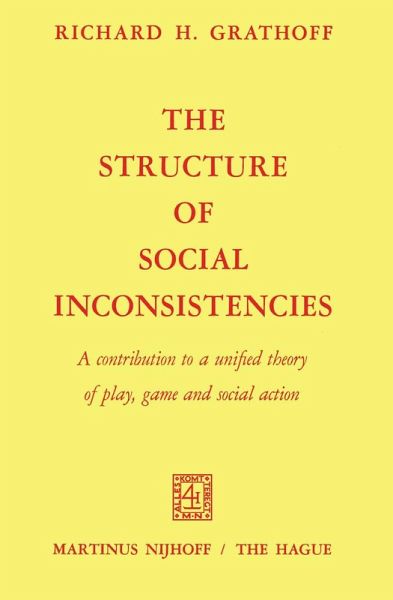
The Structure of Social Inconsistencies
A contribution to a unified theory of play, game, and social action

PAYBACK Punkte
20 °P sammeln!
Few phenomena have found such divergent descriptions in sociological lit erature as have social inconsistencies. They were studied by George Herbert Mead as eruptive "natural" events constituting a social temporality. Alfred SchUtz described them as "explosions" of the individual actor's anticipatory action patterns. Talcott Parsons attempted to grasp social inconsistencies into his frame of "pattern variables," while Erving Goffman dealt with them as disruptions of "fostered impressions of reality" maintained by one or the other dominant team. The present study traces these divergent approach...
Few phenomena have found such divergent descriptions in sociological lit erature as have social inconsistencies. They were studied by George Herbert Mead as eruptive "natural" events constituting a social temporality. Alfred SchUtz described them as "explosions" of the individual actor's anticipatory action patterns. Talcott Parsons attempted to grasp social inconsistencies into his frame of "pattern variables," while Erving Goffman dealt with them as disruptions of "fostered impressions of reality" maintained by one or the other dominant team. The present study traces these divergent approaches back to various un checked assumptions concerning the structure and the constitution of social types. Thus, to further clarify the relationship between social types and the relevance structure of interactional situations has been my first objective. This initially rather limited intention widened when the role of social incon sistencies for analysing the differences between play, game, and social action proper in the immediate context of social interaction became apparent. The structure of social inconsistencies seems to hold a key to unifying the theo ries of play and social ,action.














